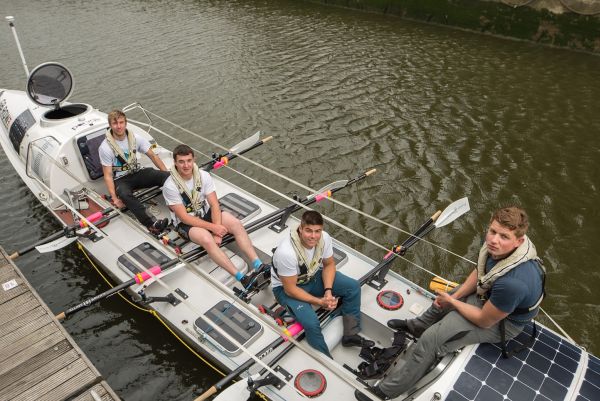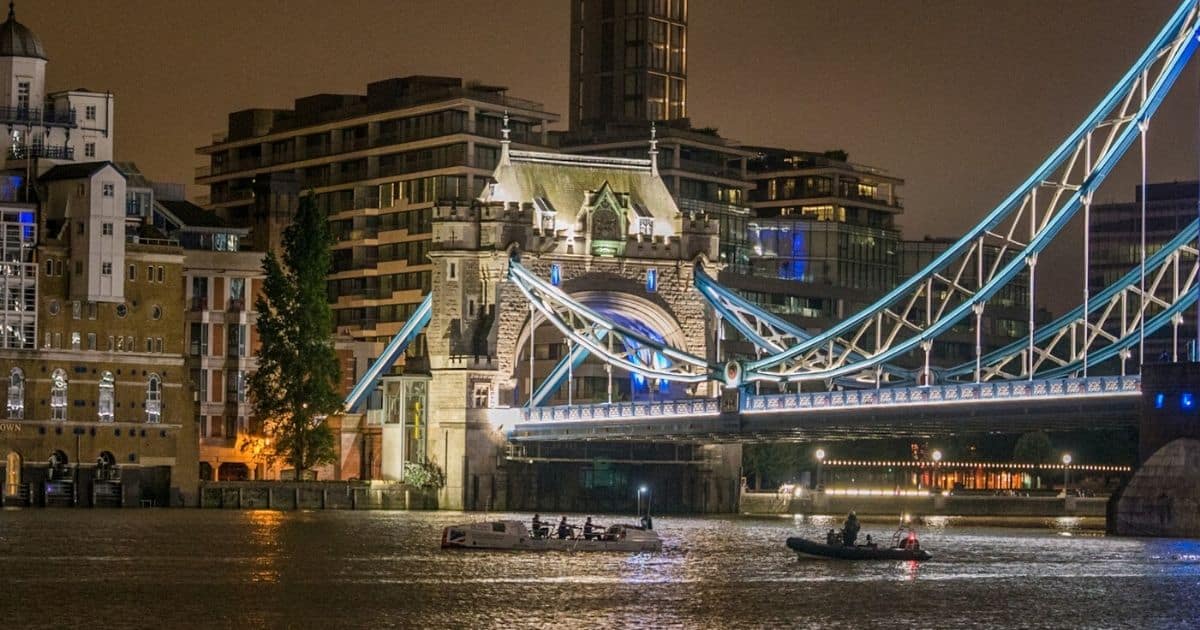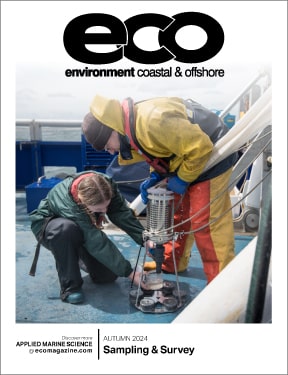The GB Row challenge saw a team of four novice rowers from universities across the UK, set off in the early hours of yesterday morning (Sunday 5 July) from Tower Bridge in London to row unassisted and non-stop over 2,000 miles around the UK coastline.
 As part of the race, marine researchers from the University have designed a series of experiments to measure microplastics and produce the first underwater sound map of the UK to measure noise pollution and the impact it has on the marine environment. The data will be collected by the Exe Endurow team who will have a range of sensors and equipment attached to their vessel.
As part of the race, marine researchers from the University have designed a series of experiments to measure microplastics and produce the first underwater sound map of the UK to measure noise pollution and the impact it has on the marine environment. The data will be collected by the Exe Endurow team who will have a range of sensors and equipment attached to their vessel.
Professor Alex Ford, from the University’s Institute of Marine Science, said “We are extremely excited about the opportunity to work with GB Row. Nothing like this has ever been done before and the data will be key for us as the leading Marine Biology department in the UK.
“As human activities continue to expand across our seas and oceans, underwater soundscapes are changing. Acoustic habitats are becoming increasingly dominated by human-made noise, which can have a range of impacts on aquatic animals – from behavioral disturbance to communication masking to physiological damage. Therefore, it is important to understand the effects of human-made noise on our oceans.”
Professor Steve Fletcher, Director of the University’s Sustainability and Environment research theme, said “Through our experiments, we will be analyzing the water samples for micro plastics and helping to build a picture of plastic pollution on Great Britain’s coastline to assess the environmental damage and long term impact being done to our seas and oceans. This work very much links to our Revolution Plastics initiative to limit the damaging consequences of plastic pollution on our health and the environment.”
Due to the current Covid-19 crisis, the majority of teams have delayed until 2021, so only one team will be competing. Team Exe Endurow have taken additional measures to continue training for the Row Around Great Britain race and have been living together as a team and as a result are able to race. They are aiming to beat the current Guinness World Record for rowing unaided around Great Britain, which was previously set by GB Row teams.
William de Lazlo, Race President of GB Row, said: “Having raced myself in 2005, GB Row Challenge is one of the hardest races in the world, and we are looking for more rowers next year to complete the mission to see if our UK waters are becoming more polluted with plastic or not. A call to all those who want a challenge with a purpose, come and do GB Row Challenge next year, so we can continue the research.”
The money raised by Exe Endurow will be shared between The British Red Cross and Just One Ocean.
David Jones, a postgraduate researcher at the University of Portsmouth and founder of Just One Ocean, said: “We are extremely grateful to be one of the two charities being supported by the Exe Endurow team. We are committed to protecting the ocean for future generations through science, education and communication, and have worked closely with the University of Portsmouth for a number of years. The funds being raised will enable us to continue to undertake and support important scientific research into some of the major issues facing the oceans today.”
Aged 20-22, Exe Endurow will be the youngest crew to ever attempt the challenge, estimated to take under 35 days in total, and have no previous rowing experience. The record was set in 2005 from Tower Bridge London back to Tower Bridge London in 26 days 21 hours and 14 minutes.
You can track the team’s progress here.
By University of Portsmouth

